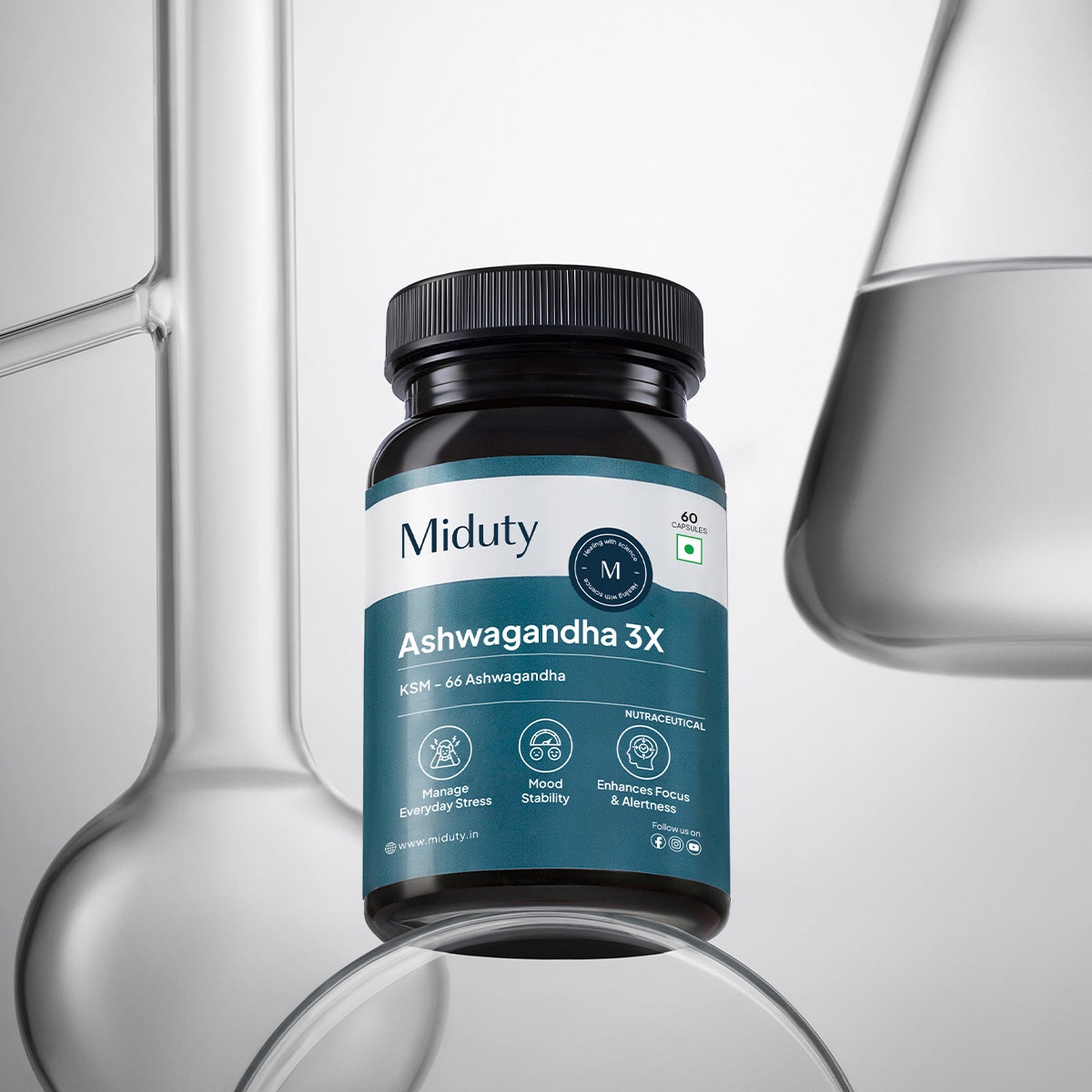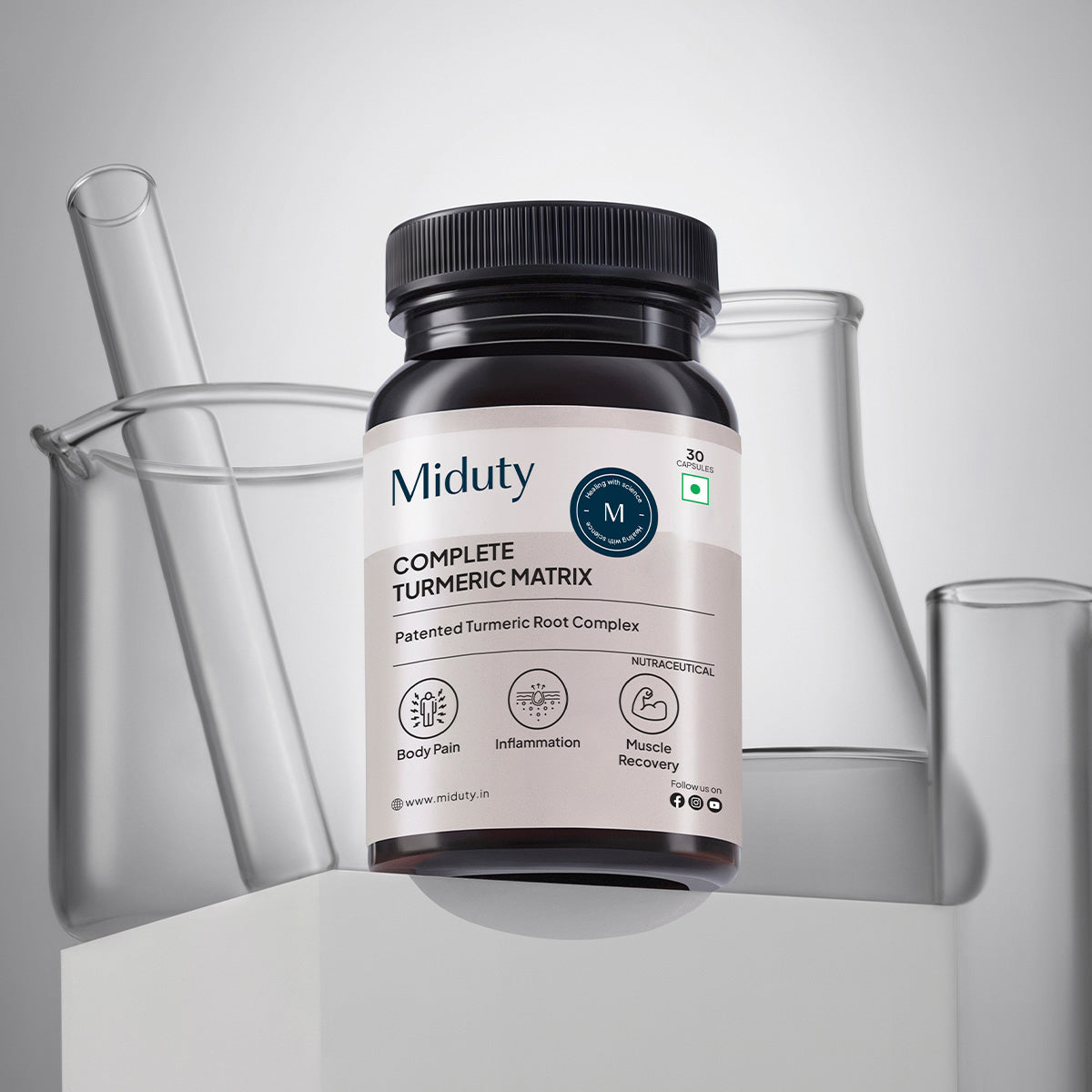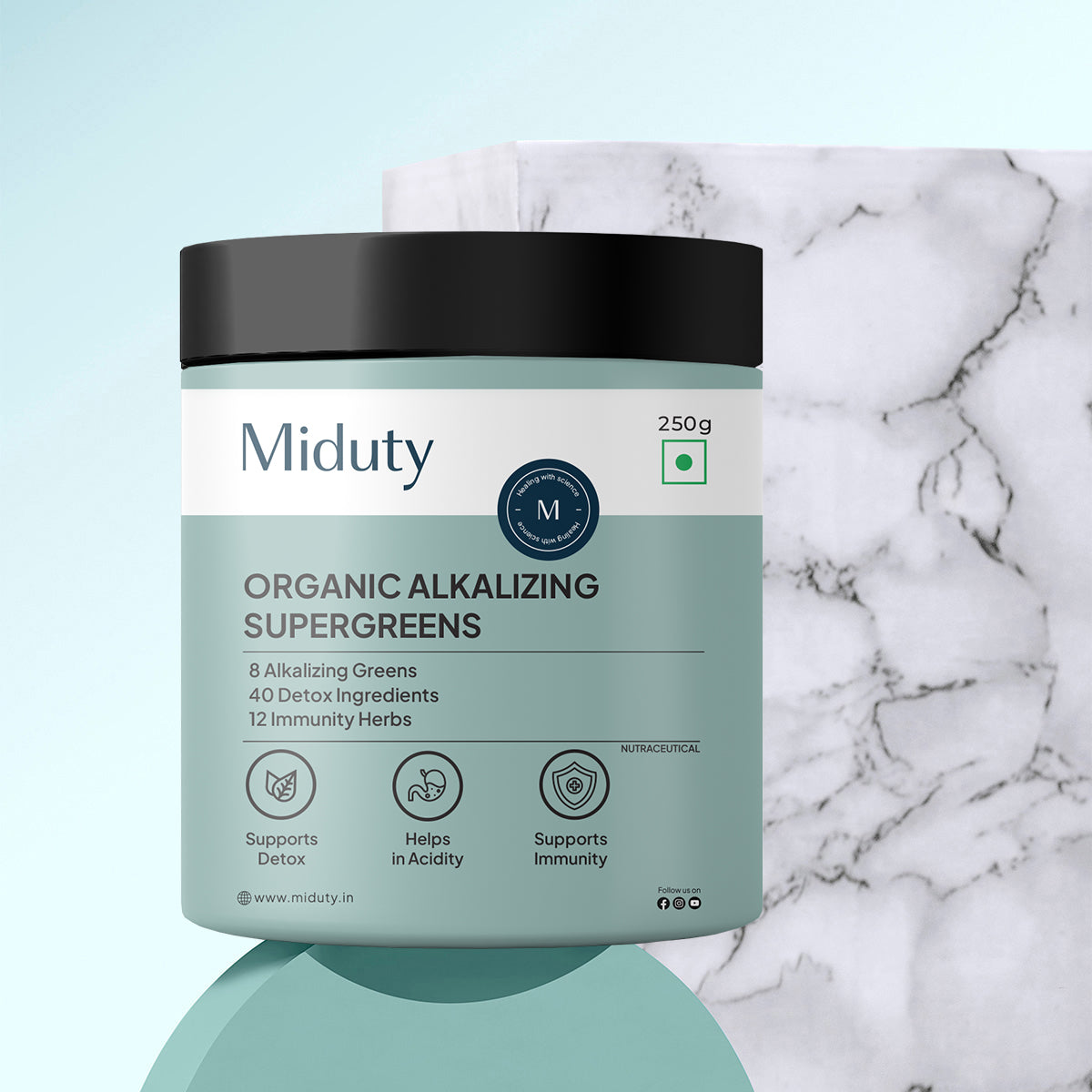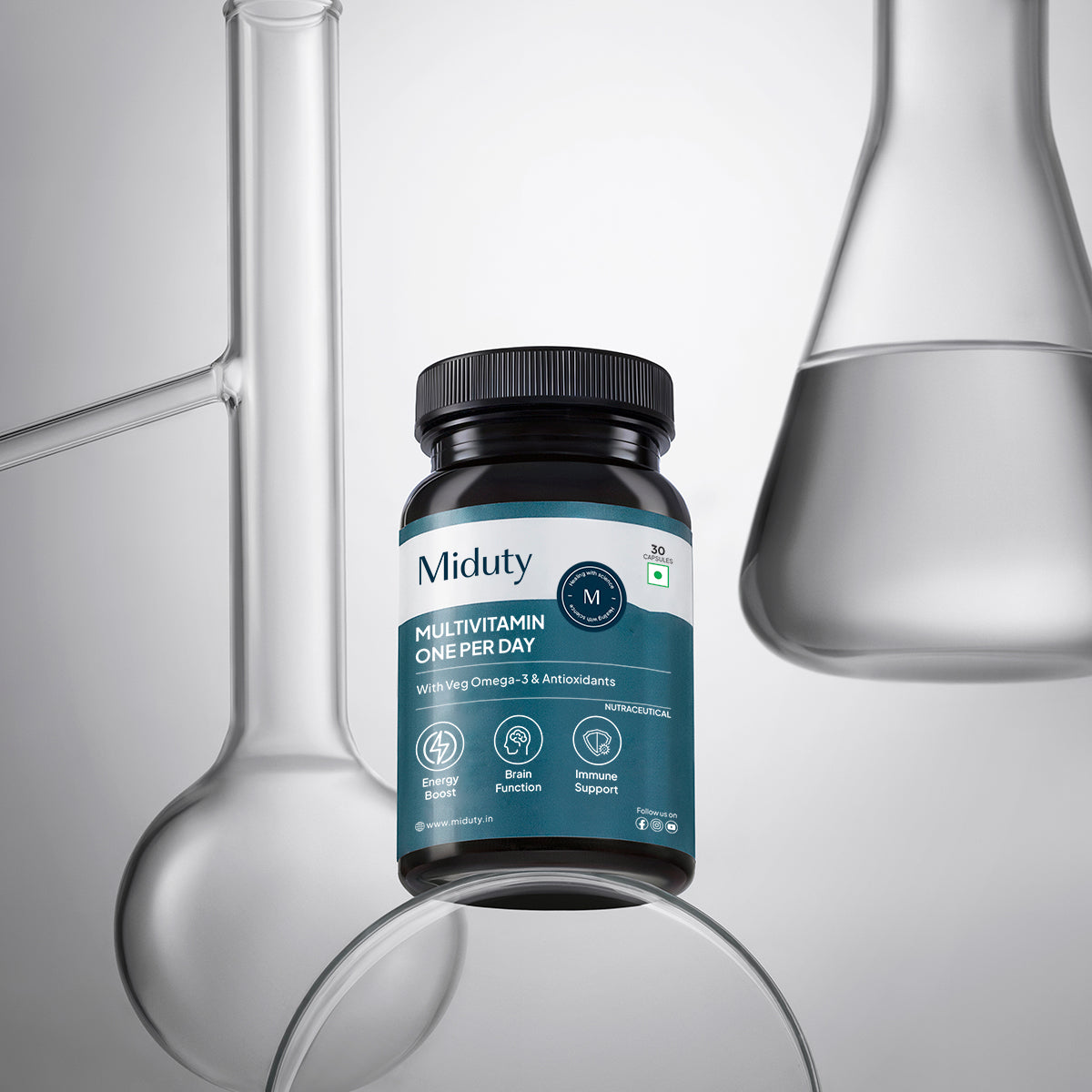
International Yoga Day 2025: Yoga Asanas and Supplements For Better Health
What if one day you could reconnect your body, mind, and spirit and also remind the world why health starts on the mat, not in a medicine? That day is International Yoga Day, and in 2025, it's more than just a celebration. It's a global wake-up call.
On June 21st, millions across continents, from high-powered CEOs to homemakers and monks in the Himalayas, will roll out their yoga mats, strike their best poses, and breathe in unity.
But here's something you may not have thought about: while yoga heals, strengthens, and transforms, your body needs the right internal fuel to make the most of every stretch and breath. That's where science-backed supplements come into play.
In this blog, we'll explore the meaning and importance of International Yoga Day, top yoga asanas for health, and the best supplements for every dedicated practitioner. Whether you're a beginner yogi or a yoga practitioner, or a trainer, this guide will help you celebrate more intentionally, perform better, and recover faster.
Key Takeaways
1. Yoga Can Reduce Stress Hormones by 25%: Regular yoga practice significantly lowers cortisol levels, improves sleep quality by 68%, and enhances emotional resilience, according to studies by Harvard and AIIMS.
2. Top 7 Yoga Asanas for Better Health: From Surya Namaskar to Balasana, these scientifically backed yoga postures improve flexibility, cardiovascular health, mental clarity, and even reduce back pain by 36%.
3. Supplements That Boost Your Yoga Practice: The power of Magnesium, Omega‑3, Turmeric, and Ashwagandha to support recovery, reduce joint pain by up to 50%, and boost stamina naturally.
4. Yoga provides 27% Boost in Brain-Calming GABA Levels: Discover how just one hour of yoga can significantly improve mental health by increasing GABA, a neurotransmitter linked to reduced anxiety and depression.
5. Yoga Cuts Inflammation by 32%: Learn how yoga practice lowers critical markers like CRP and TNF-α, helping prevent chronic diseases such as diabetes, arthritis, and heart conditions all backed by recent clinical research.
According to a 2022 survey by the Global Wellness Institute, over 300 million people worldwide now practice yoga regularly, a staggering 250% increase from a decade ago. But it's not just about stretching or flexibility anymore. People are turning to yoga for holistic healing combining physical postures (asanas), breathwork (pranayama), and meditation to manage everything from anxiety and obesity to hypertension and burnout.
And this is exactly why International Yoga Day 2025 holds such powerful significance: it's not just an event, it's a lifestyle wave reshaping how we view health, mindfulness, and self-care.
What is International Yoga Day?
Yoga, with its 5,000-year-old roots in India, isn't just a fitness trend; it's a spiritual discipline. In 2014, the United Nations recognized its significance and declared June 21st as International Yoga Day. Since then, it has become a global tradition that grows stronger every year.
When is International Yoga Day Celebrated and Why?
If you've ever wondered when International Yoga Day is celebrated, the answer is June 21 every year. But why this specific date? June 21 is the summer solstice, the longest day of the year in the Northern Hemisphere. In yogic tradition, this date marks the beginning of Dakshinayana, the six-month journey of the sun towards the south. It's considered a powerful time for spiritual practices, self-reflection, and physical discipline. So on this day, whether you're holding a Warrior Pose or simply meditating, you're syncing with a cosmic rhythm that's been honored for centuries.
Importance of Yoga
Yoga has never just been about bending and twisting it's about aligning your mind, body, and soul. International Yoga Day acts as a massive global reminder of this principle. According to WHO, more than 70% of deaths worldwide are due to lifestyle-related diseases, many of which can be prevented or managed with consistent yoga practice. Yoga also awakens spiritual curiosity. Through breathwork and meditation, practitioners begin to clearly observe their thoughts, emotions, and inner world.
A 2021 study conducted in Delhi found that after four weeks of integrated yoga intervention, perceived stress was reduced by 27% and sleep quality improved by 38.7% among nursing staff.
Over 41% of Indians have embraced Yoga, with 24.6% reporting better fitness and 16.9% reduced stress, according to an Ayush ministry survey.
Here's what consistent yoga practice can do for your body, mind:
- Improves flexibility: A study published in the Journal of Bodywork and Movement Therapies showed a 35% increase in flexibility in participants after just 8 weeks.
- Boosts muscle tone: Holding poses like Plank or Warrior strengthens muscles without weights.
- Enhances posture: Regular yoga corrects imbalances caused by sedentary lifestyles.
- Increases energy: Deep breathing and mindful movement enhance oxygen flow and reduce fatigue.
- Reduces cortisol levels (your body's main stress hormone)
- Increases gamma-aminobutyric acid (GABA), which helps fight anxiety and depression
- Improves sleep quality by regulating melatonin
In one 2021 meta-analysis of 34 studies, yoga was found to be as effective as cognitive behavioral therapy (CBT) in treating mild depression.
Top 7 Yoga Asanas for Better Health with Their Benefits
Here are the top yoga asanas that can improve your physical, mental, and emotional well-being — all backed by science.
1. Surya Namaskar (Sun Salutation)

Surya Namaskar is one of the most popular yoga sequences and often the first asana people learn. It's a series of 12 postures that offer a complete body workout and is perfect for practitioners at all levels.
Benefits:
- Improves flexibility and mobility
- Enhances blood circulation
- Boost digestion and metabolism
- Reduces anxiety
- Aids in weight management
- Boosts cardiovascular health
- Improves mental clarity and concentration
A 2020 research article published in the International Journal of Yoga found that practicing Surya Namaskar for 12 weeks led to a 24% increase in VO2 max, a key indicator of cardiovascular fitness.
A study published in the Journal of Ayurveda and Integrative Medicine found that performing Surya Namaskar daily for just 20 minutes improved cardiopulmonary endurance significantly in healthy adults.
2. Adho Mukha Svanasana (Downward-Facing Dog)

A staple in almost every yoga routine, this posture stretches the hamstrings, calves, and spine while strengthening the arms and legs.
Benefits:
- Relieves back pain
- Improves posture
- Enhances circulation
- Reduces stress and depression
3. Bhujangasana (Cobra Pose)

Bhujangasana helps open up the chest and lungs, which can be especially helpful for those struggling with breathing issues or stress-related tension.
Benefits:
- Strengthens spine
- Opens up lungs and chest
- Stimulates abdominal organs
- Alleviates stress and fatigue
One study in Journal of Nature and Science Medicine observed that consistent practice of Bhujangasana, among other poses, significantly reduced cortisol levels (stress hormone) by 20%.
4. Padmasana (Lotus Pose)

Often used for meditation, Padmasana centers the mind and prepares the body for long periods of stillness.
Benefits:
- Enhances concentration
- Promotes mental clarity
- Opens up hips
- Calms the brain
In a mindfulness study, sitting in a meditative yoga pose like Padmasana for 15 minutes a day helped reduce symptoms of anxiety by 40% over 8 weeks.
5. Virabhadrasana II (Warrior II)

Channel your inner warrior. Warrior II is a strength-building posture that tones your legs, opens your hips, and sharpens your stamina.
Benefits:
- Increases stamina and endurance
- Opens hips and chest
- Builds lower-body strength
- Encourages mental resilience
6. Balasana (Child's Pose)

Child's Pose is where healing begins. It's a gentle, resting pose that provides a mental reset during intense sessions.
Benefits:
- Reduces tension in the back and neck
- Calms the nervous system
- Enhances blood circulation to the brain
- Supports digestion
Practicing Balasana regularly can lower heart rate and cortisol levels key for managing stress.
7. Setu Bandhasana (Bridge Pose)

A perfect backbend for beginners, this pose strengthens your lower body while opening up the chest and lungs.
Benefits:
- Improves spinal flexibility
- Stimulates thyroid function
- Strengthens glutes and hamstrings
- Aids in managing menstrual discomfort
Pair this pose with deep breathing, and it becomes a game-changer for your back and mental health.
Benefits of Yoga
Let's go beyond the mat and into the lab. Here's what science says about the physiological and psychological benefits of regular yoga practice.
1. Cardiovascular Health Statistics
Yoga isn't just stretching; it's heart-smart. Studies from the American Heart Association show that yoga can reduce systolic and diastolic blood pressure by 10–12 mmHg. That's equivalent to some first-line medications for hypertension.
Additionally, a 2025 showed that yoga reduced LDL (bad) cholesterol by 12% and improved HDL (good) cholesterol by 7% in regular practitioners.
2. Mood & Mental Health (GABA Increase)
One of the lesser-known benefits of yoga is its impact on GABA (gamma-aminobutyric acid), a neurotransmitter that helps regulate anxiety.
A study found a 27% increase in GABA levels after a 60-minute yoga session. GABA deficiencies are linked to anxiety, depression, and sleep disorders, meaning yoga rebalances your brain chemistry.
3. Inflammation & Chronic Disease Markers
Chronic inflammation is the root of many diseases, including diabetes, arthritis, and even cancer. Yoga can act as a natural anti-inflammatory agent.
A 2021 study from Frontiers in Human Neuroscience showed that regular yoga practice lowered C-reactive protein (CRP) levels by 32%, a marker of inflammation. It also reduced interleukin-6 (IL-6) and tumor necrosis factor-alpha (TNF-α), both linked to systemic inflammation.
4. Mobility and Balance in Older Adults
Yoga isn't just for the young and flexible. It's a blessing for aging populations. A 12-week trial published in The Gerontologist showed that yoga improved balance by 34% and mobility by 23% in seniors, reducing the risk of falls.
Clearly, yoga is not only ancient it's clinically relevant.
Importance of Supplements for Yoga Practitioners
While yoga addresses a wide range of physical and mental challenges, it doesn't always fully cover the body's nutritional needs especially in our modern, fast-paced world. Think of your body like a temple. Yoga is your daily ritual to cleanse and purify that temple. But supplements? They're the structural reinforcements that keep it strong.
Most people don't eat perfectly. Pollution, stress, processed food, and erratic sleep cycles mean our bodies are often running on less than optimal fuel. This is where high-quality supplements come in. For instance, magnesium supports muscle relaxation, Vitamin D enhances bone strength, and Ashwagandha helps manage stress, all crucial for someone deepening their yoga practice.
Supplements aren't a shortcut, they're a support system. They help bridge the gap between your ideal wellness state and your current reality.
Top 6 Supplements for Yoga Practitioners
Yoga enhances your internal systems, but even yogis need nutritional reinforcement. Here are the best science-supported supplements to elevate your yoga practice.
1. Magnesium – The Relaxation Mineral
Yoga involves deep muscle engagement. Magnesium helps muscles contract and relax — crucial for avoiding cramps and soreness. Magnesium is essential for over 300 biochemical reactions in the body and is particularly helpful for yoga enthusiasts.
Benefits:
- Enhances recovery
- Improves sleep and stress response
- Supports energy production
- Promotes muscle relaxation
- Enhances sleep quality
- Reduces cramps and soreness
A study in Magnesium Research showed that 70% of athletes had magnesium deficiencies, impacting performance and recovery. Dosage: 300–400 mg/day. One study published in Nutrients found that magnesium supplementation helped improve sleep efficiency by 10-15% in adults with mild to moderate insomnia.
2. Omega‑3 Fatty Acids – For Joint and Brain Health
Joint pain or stiffness during asanas? Omega‑3s are a yogi's best friend.
Benefits:
- Reduces joint inflammation
- Supports brain and joint health
- Improves cardiovascular performance
A meta-analysis from JAMA showed that fish oil supplementation reduced joint stiffness in 65% of participants. A meta-analysis in The American Journal of Clinical Nutrition concluded that Omega-3 supplementation reduced joint stiffness in people with chronic inflammatory conditions by 35%.
3. Plant-Based Protein (or Whey Protein)
Especially important after power yoga sessions or strength-based flows.
Benefits:
- Repairs muscle tissue
- Supports lean muscle growth
- Fills protein gaps in vegan diets
A 2023 review found that supplementing 20–30g of protein post-workout improved muscle recovery by up to 35%.
4. Turmeric/Curcumin
Curcumin, the active ingredient in turmeric, is a powerful anti-inflammatory.
Benefits:
- Eases joint pain
- Boosts immune health
- Improves recovery time
A clinical trial in Phytotherapy Research showed that 500 mg of curcumin twice daily reduced joint pain by 50% over 8 weeks.
5. Vitamin D – The Sunshine Vitamin
Yoga often happens indoors, but your body still needs sunlight's magic — Vitamin D.
Benefits:
- Strengthens bones
- Enhances immune function
- Reduces injury risk
Most adults are deficient. 1,000–2,000 IU per day is a safe starting dose, but always test your levels.
6. Ashwagandha – The Stress Buster
Ashwagandha is an adaptogenic herb that has long been used in Ayurveda. It's known for its ability to help the body manage stress.
Benefits:
- Reduces anxiety and cortisol levels
- Improves stamina
- Boosts immune function
According to a 2024 study in Medicine (Baltimore), Ashwagandha supplementation reduced cortisol levels by 27.9% and improved stress resistance in 60 days.
Conclusion
International Yoga Day 2025 isn't just another date on the calendar, it's a personal invitation to breathe deeper, stretch wider, and live more mindfully. Whether you're in India or anywhere else in the world, this day reminds us of a simple yet profound truth: wellness begins within.
From ancient postures to modern supplements, yoga remains the bridge between traditional wisdom and modern science. Integrating proven supplements like magnesium, ashwagandha, omega‑3, curcumin and more can help you recover better, feel stronger, and stay balanced.
As you celebrate this year, don't just follow a routine, create a ritual. Move with purpose, breathe with clarity, and remember that every stretch is a step toward inner freedom and a healthier you.
Happy World Yoga Day!!
FAQs on International Yoga Day -
Q1. Why is 21st June International Yoga Day?
June 21, the longest day of the year in the Northern Hemisphere, holds spiritual significance in yoga and marks the transition to Dakshinayan, making it ideal for celebrating Yoga.
Q2. Who launched International Yoga Day?
Indian Prime Minister Narendra Modi proposed the idea during his UN address in 2014.
Q3. Who declared International Yoga Day?
The United Nations General Assembly (UNGA) officially declared June 21 as International Yoga Day in December 2014.
Q4. What are the 12 Asanas names?
The 12 poses of Surya Namaskar (Sun Salutation) are: Pranamasana, Hastauttanasana, Padahastasana, Ashwa Sanchalanasana, Dandasana, Ashtanga Namaskara, Bhujangasana, Parvatasana, Ashwa Sanchalanasana, Padahastasana, Hastauttanasana, Pranamasana
Q5. What is the theme of Yoga Day 2025?
The theme for International Yoga Day 2025 is Yoga for One Earth, One Health, emphasizing the deep connection between personal well-being and the health of our planet.
References















